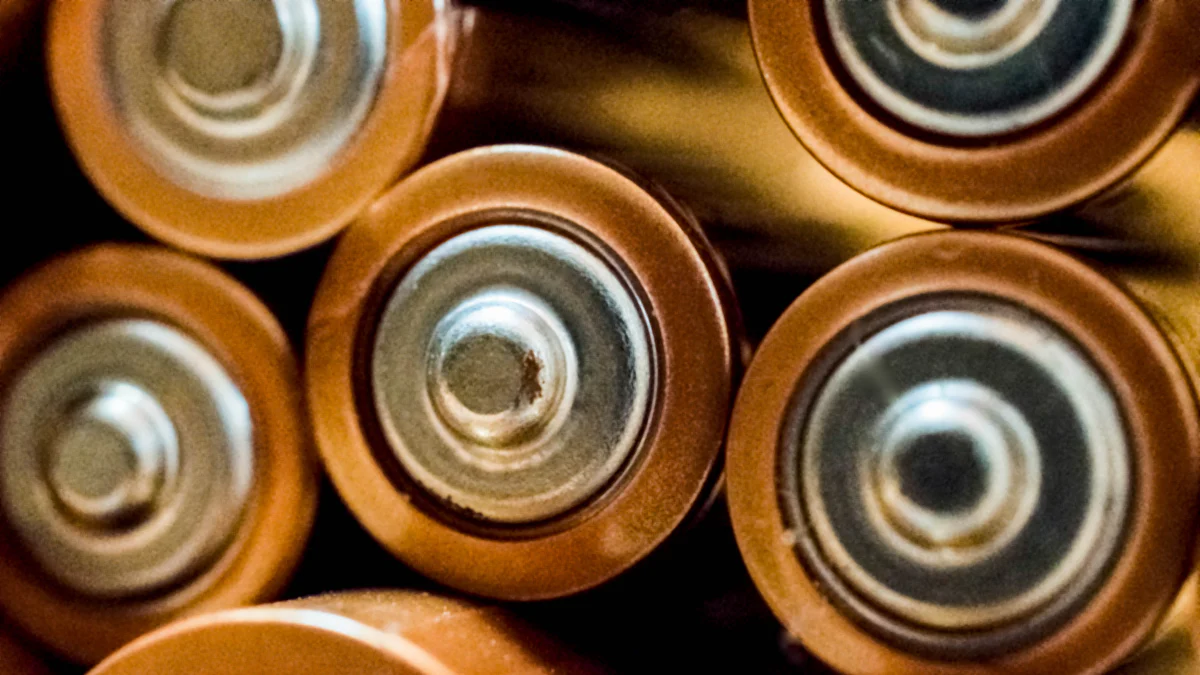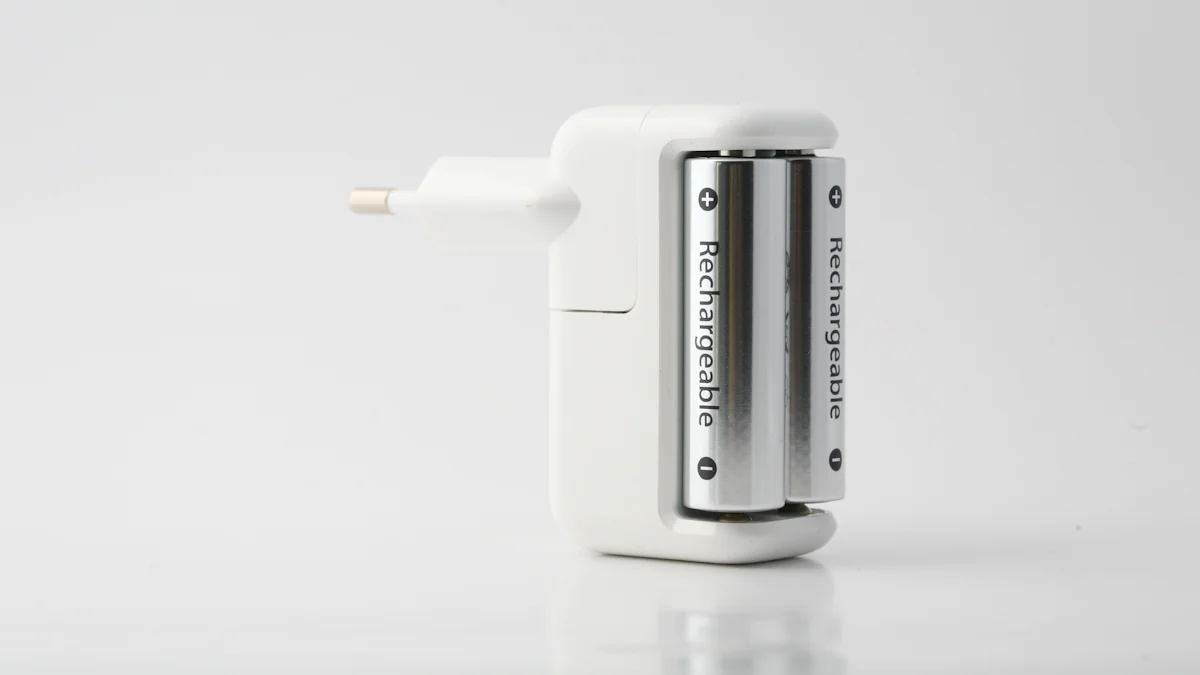Top Batteries Flashlights Love: A Comprehensive Guide

Flashlights are indispensable tools in various scenarios, and the batteries they use play a crucial role in their performance. Understanding the significance of selecting the right batteries is essential for optimal functionality. With different types available, such as alkaline and lithium, choosing the best one can be challenging. This comprehensive guide aims to assist readers in making informed decisions when selecting the ideal batteries for their flashlights use.
Alkaline Batteries

When it comes to batteries for flashlights, Alkaline Batteries are a popular choice due to their versatility and accessibility. Understanding their common uses, advantages, and limitations can help users make informed decisions when selecting the right power source for their devices.
Common Uses
Everyday Flashlights: Alkaline Batteries are commonly used in everyday flashlights that require reliable power sources for regular use.
Emergency Flashlights: In emergency situations where immediate illumination is crucial, Alkaline Batteries provide a dependable energy supply for emergency flashlights.
Advantages
Availability: One of the significant advantages of Alkaline Batteries is their widespread availability in stores worldwide, making them easily accessible for users at any time.
Cost-effectiveness: Compared to other types of batteries, such as lithium-ion batteries, Alkaline Batteries are more cost-effective, providing an affordable power solution for various devices.
Limitations
Shorter Lifespan: Despite their convenience and affordability, Alkaline Batteries have a shorter lifespan compared to rechargeable batteries like NiMH or Li-ion batteries. Users may need to replace them more frequently.
Environmental Impact: The disposal of used Alkaline Batteries can have a negative environmental impact due to the chemicals they contain. Proper recycling or disposal methods are essential to minimize harm to the environment.
As experts in battery technology emphasize, understanding the characteristics of different battery types is crucial in choosing the right power source for your flashlight needs. While Alkaline Batteries offer convenience and accessibility, it's essential to consider factors like lifespan and environmental impact when making your selection.
Protected batteries with built-in safety measures are recommended for optimal performance and safety. Additionally, considering rechargeable options like Ni-MH batteries can provide long-term cost savings and environmental benefits while reducing waste from disposable batteries.
Lithium Batteries
When it comes to flashlights use, Lithium Batteries stand out as a top choice for both high-performance flashlights and professional applications. Their exceptional characteristics make them a preferred power source in various scenarios where reliability and longevity are paramount.
Flashlights Use
High-Performance Flashlights
For high-performance flashlights, Lithium Batteries offer unmatched power output and endurance, ensuring consistent brightness levels over extended periods. Whether used in tactical operations or outdoor adventures, these batteries provide the necessary energy for optimal flashlight performance.
Professional Use
In professional settings, such as search and rescue missions or law enforcement operations, Lithium Batteries are indispensable due to their ability to deliver sustained power in demanding environments. Professionals rely on the long-lasting performance of these batteries to illuminate dark spaces effectively.
Advantages
Longer Lifespan
One of the primary advantages of Lithium Batteries is their extended lifespan compared to other battery types. With a longer operational life, users can depend on these batteries for continuous illumination without frequent replacements, making them ideal for critical situations.
High Energy Density
Lithium Batteries boast high energy densities, allowing them to store more power in a compact size. This feature enables flashlights to deliver brighter light outputs while maintaining efficiency, making them suitable for tasks that require intense illumination over prolonged periods.
Considerations
Cost
While Lithium Batteries offer superior performance, their initial cost may be higher than traditional alkaline batteries. However, considering their extended lifespan and enhanced capabilities, the long-term cost-effectiveness of these batteries outweighs the upfront investment.
Safety
Safety is a crucial consideration when using Lithium Batteries in flashlights. These batteries are known for their stable chemistry and reduced risk of leakage or overheating compared to other battery types. Proper handling and storage practices ensure safe operation and maximize the benefits of lithium technology.
In various studies highlighting the advantages of Lithium-ion Batteries, researchers emphasize their high energy densities, long lifespans, and environmental friendliness. These findings underscore the significance of choosing Lithium Batteries for flashlight applications where reliability and performance are essential.
Rechargeable Batteries

When it comes to flashlights use, Rechargeable Batteries offer a sustainable and cost-effective power solution for various applications. Understanding their benefits, types, and ideal uses can help users maximize the performance of their flashlights while minimizing environmental impact.
Flashlights Use
Frequent Use Flashlights
For frequent use flashlights, Rechargeable Batteries are the optimal choice due to their ability to be recharged multiple times, providing a reliable power source for daily illumination needs. Whether used for household tasks or outdoor activities, these batteries ensure consistent performance without the need for frequent replacements.
Outdoor Activities
During outdoor activities such as camping, hiking, or night-time exploration, Rechargeable Batteries play a crucial role in powering flashlights for extended periods. Their rechargeable nature allows users to replenish the energy supply conveniently, ensuring continuous illumination in remote locations or emergency situations.
Types
NiMH Batteries
Nickel-Metal Hydride (NiMH) Batteries are a popular choice among rechargeable options for flashlights due to their high energy capacity and ability to hold charges well. These batteries provide a sustainable power solution for various flashlight models, offering long-lasting performance and reliability during prolonged use.
Li-ion Batteries
Lithium-ion (Li-ion) Batteries stand out as advanced rechargeable options known for their high energy densities and extended lifespans. Ideal for high-performance flashlights requiring intense illumination levels, these batteries deliver superior power output and efficiency, making them suitable for professional settings or outdoor adventures where reliability is paramount.
Benefits
Cost Savings
One of the significant advantages of Rechargeable Batteries is the potential for long-term cost savings compared to disposable battery options. By investing in rechargeable batteries like NiMH or Li-ion variants, users can reduce recurring expenses on single-use batteries while enjoying sustained performance and reliability from their flashlights.
Environmental Benefits
Choosing Rechargeable Batteries over disposable alternatives contributes to environmental sustainability by reducing battery waste and minimizing harmful chemicals released into ecosystems. By opting for rechargeable options that can be reused multiple times, users actively participate in eco-friendly practices that promote a cleaner and greener planet.
In summarizing the diverse battery options for flashlights, it's crucial to consider individual needs for optimal performance. For everyday use, Alkaline Batteries offer convenience and accessibility, while Lithium Batteries excel in high-performance and professional settings. Rechargeable options like NiMH and Li-ion batteries provide sustainable solutions for frequent use and outdoor activities. Tailoring the choice of battery to specific scenarios ensures reliable power sources when needed most. Make an informed decision based on your flashlight requirements to illuminate every path effectively.
2024/6/3
See Also
A Comprehensive Overview of Flashlight Battery Essentials
Selecting the Perfect Household Flashlight: An In-Depth Manual
Selecting the Top Mini Flashlight: An Extensive Guide
